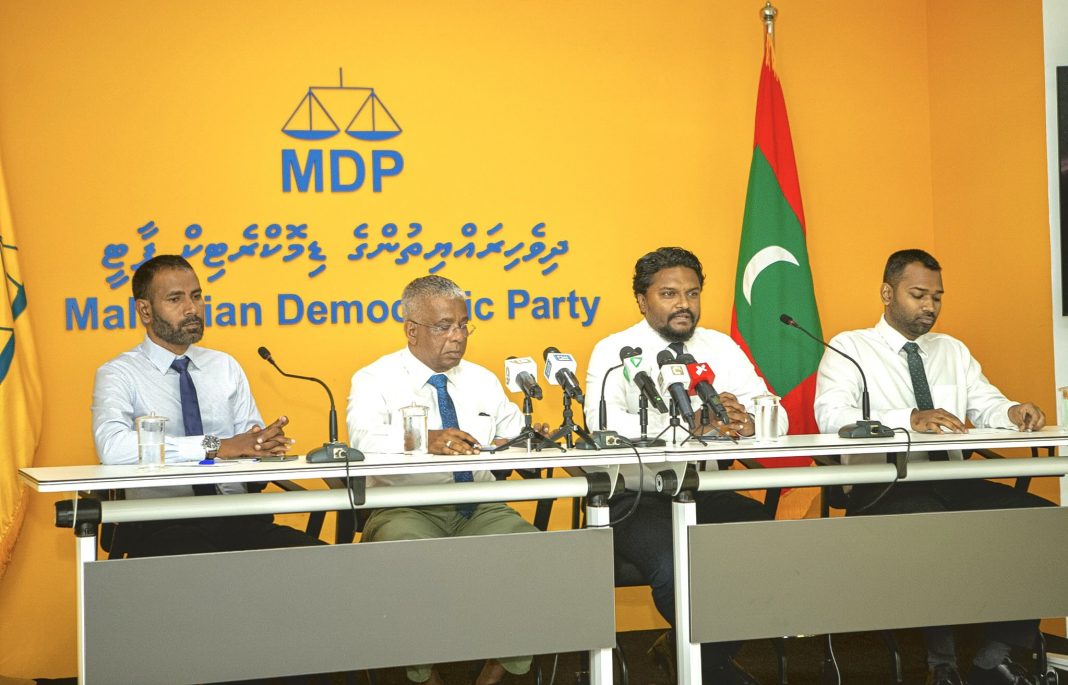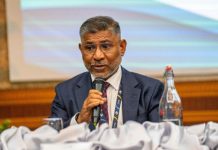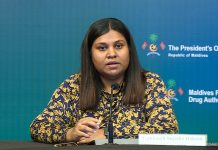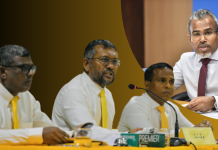The main opposition Maldivian Democratic Party (MDP) has accused the Muizzu administration of using the police and the Anti-Corruption Commission (ACC) to selectively target opposition members with criminal investigations. The party claims these actions are intended to divert attention from serious corruption allegations against the administration.
The accusations follow a police raid on the residence of Moosa Ali Manik (Mookey), the former managing director of the Road Development Corporation (RDC) and a member of the MDP’s national council. The raid, described by the MDP as “intrusive,” occurred at approximately 2:00 am on Friday while Mookey and his family were asleep.
In a statement, the MDP described the raid as an example of “a troubling trend of intimidation and harassment directed at opposition figures.” The party raised concerns about what it called the erosion of democratic norms and basic rights under President Dr. Mohamed Muizzu’s administration.
Allegations of Politically Motivated Actions
The MDP claimed that the government’s justifications for these actions are based on “completely unsubstantiated claims” intended to defame MDP members and other opposition figures. The party highlighted several incidents it described as politically motivated, including:
- Investigations into former President Ibrahim Mohamed Solih, MDP Chairperson and former Economic Minister Fayyaz Ismail, and former State Minister at the President’s Office Ali Shiyam regarding settlements granted under the previous administration.
- Travel bans imposed on former State Minister for Housing Akram Kamaluddin and former Managing Director of Fenaka Corporation Ahmed Saeed Mohamed in connection to corruption investigations by the ACC.
- A police summons issued to MDP activist Hussein Shafiu (Thuthu) over a post on social media platform X.
- Threats of action against Fayyaz Ismail for a speech delivered at an MDP rally.
Concerns Over ACC Independence
The MDP expressed support for investigations into corruption allegations but argued that recent amendments to the Anti-Corruption Commission Act have compromised the impartiality of the ACC. The amendments, passed on November 25 and ratified the following day, grant the President the authority to appoint the ACC’s president and vice president.
The MDP criticized these changes as “autocratic” and claimed they effectively place the ACC under political control, turning it into “a tool to pursue [President Muizzu’s] personal political vendettas.”
The party also accused the police of selectively pursuing corruption cases, which it said undermines public trust in independent institutions. “The aforementioned cases are being weaponized to target opposition members while deflecting attention from serious allegations of corruption against the current administration,” the MDP said.
These allegations include the misuse of state funds through the National Social Protection Agency (NSPA) and corruption within the Housing Development Corporation (HDC) involving the sale of sought-after land plots in the Greater Male’ region. The MDP noted that no credible investigations have been initiated into these issues.
The MDP demanded that the government cease politically motivated actions against opposition members and adhere to principles of democracy, transparency, and accountability. The party also called on the international community to monitor these developments and support the Maldivian people in safeguarding democratic freedoms.


















